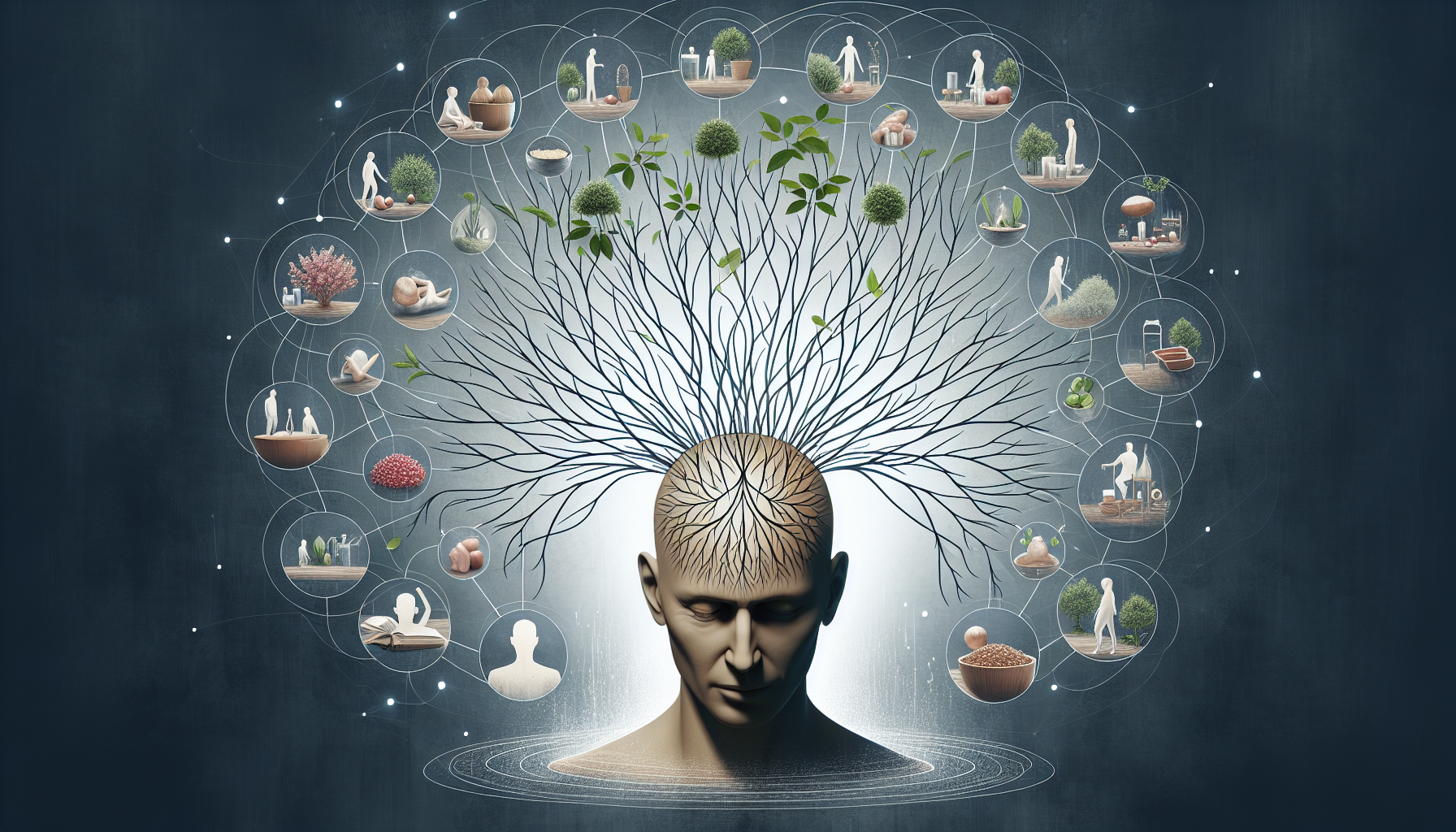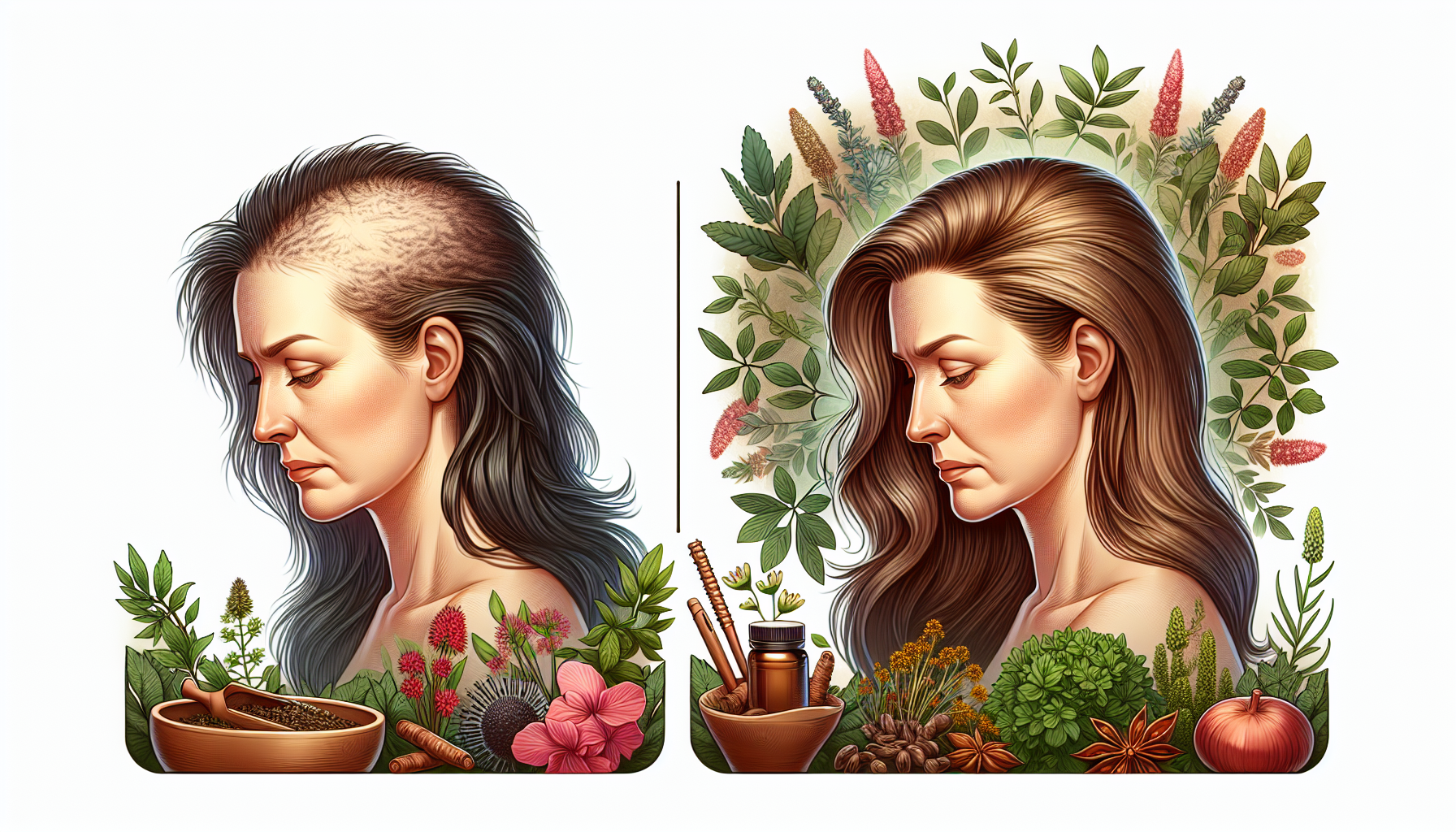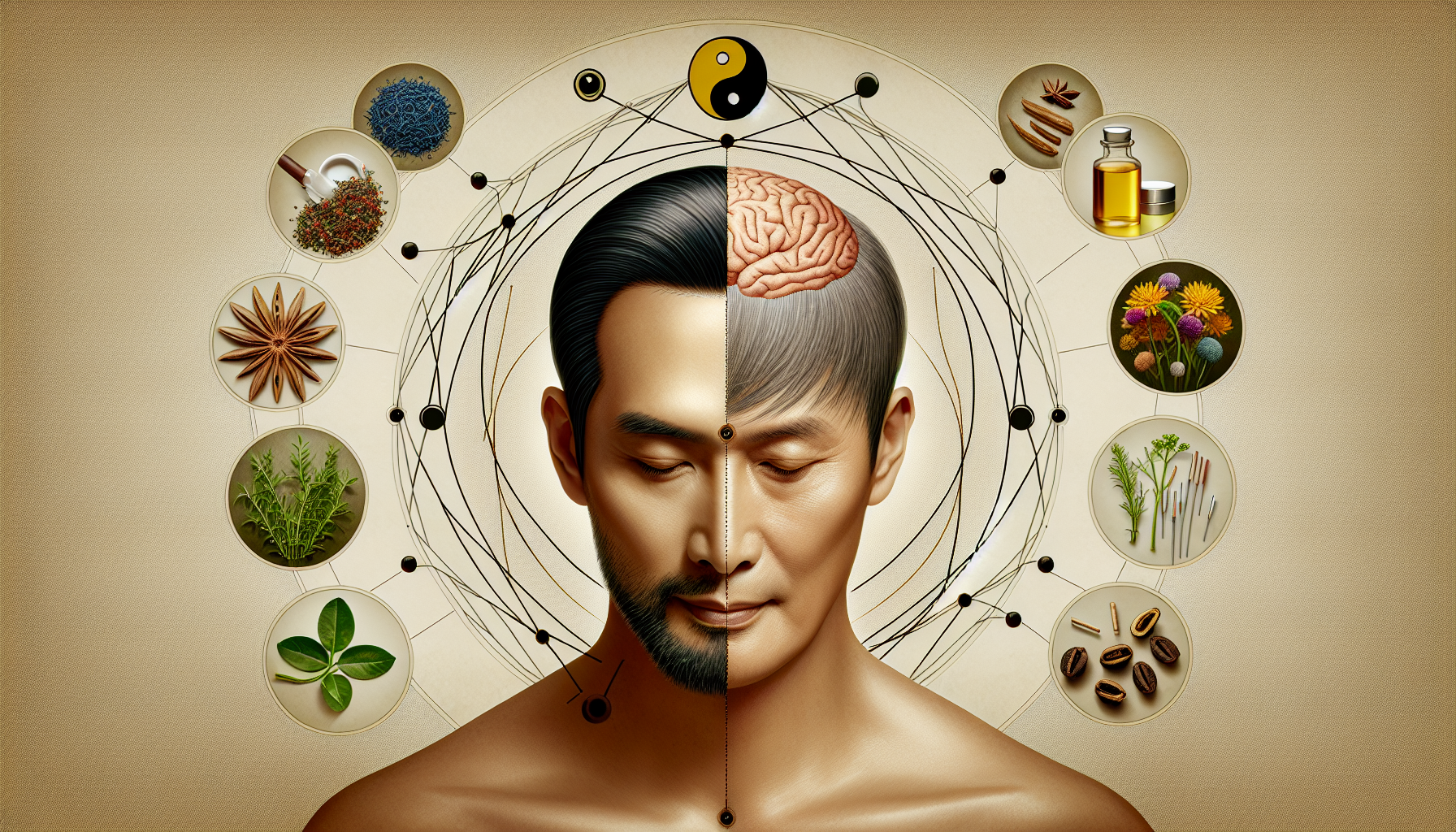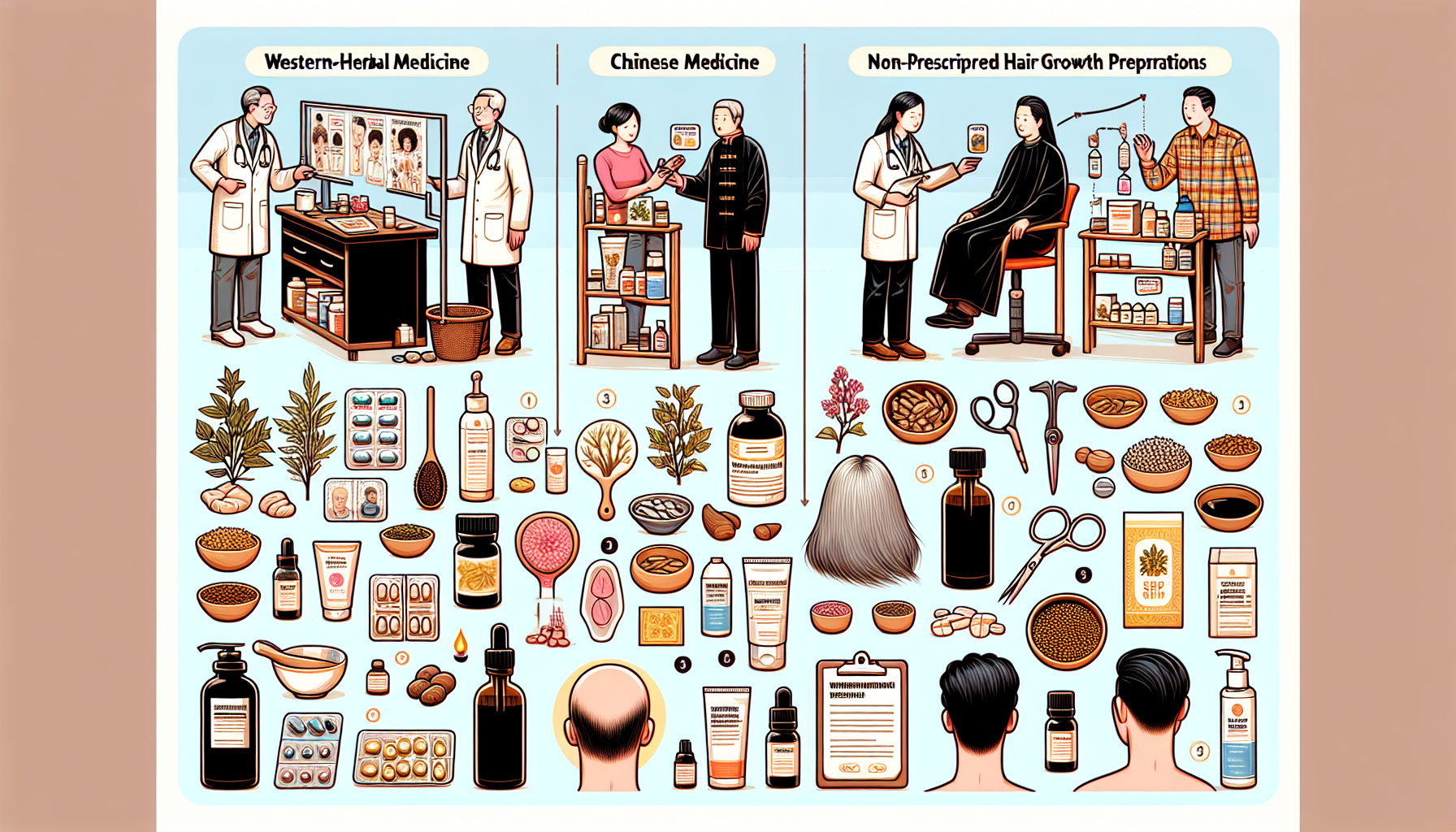
Best Treatment for Hair Loss - Skip the miracle, Get knowledgeable, Be successful...
Skintegratit - Best Hair Loss Treatment
Forget miracle cures, make informed decisions and remember, finding the best treatment for hair loss requires a personalized approach. So, Address the root cause of hair loss by understanding the various diagnoses and treatments and create a personalized strategy for success within the 3-WCP approach:
Western-Herbal medicine, Chinese medicine, and non-prescribed hair-growth Preparations. Now, we know...
Hair loss can feel like losing a part of yourself. Right? It whispers doubts, chips away at confidence, and leaves you searching for answers. You're not alone. Millions grapple with this, yearning for a solution that truly works. But, let us give you advice...
Forget the fleeting promises of miracle cures. Hair loss treatment isn't about quick fixes. It's about addressing the root cause, nurturing your whole being, and reclaiming your crown. In other words...
Let's embark on a journey of understanding, exploring ancient traditions' wisdom and modern science's insights to rediscover the path to vibrant, healthy hair. Shall we start?
Oh, by the way... if you're looking for immediate tips from Dr. Hoodis on how to stop hair loss, click here. Get a step by step - Blending Western herbal medicine and Chinese herbal wisdom for effective, successful solutions. O.K., Back to our journey...
The Foundation for Best Hair Loss Treatment: Understanding Your Unique Story...
Before we explore the remedies, we must understand the story your body is telling. Hair loss isn't a single entity; it's a symptom with many potential causes. Just as a wilting plant needs different care depending on whether it's parched, overwatered, or nutrient-deficient, your hair loss requires a tailored approach. Meaning...
A thorough assessment is paramount.
This might involve blood tests to uncover nutritional deficiencies (iron, zinc, vitamin D), hormonal imbalances (thyroid issues, elevated androgens), or autoimmune conditions. A non-invasive examination of the scalp and hair shafts, can reveal miniaturization, breakage, or inflammation patterns, offering clues about the underlying cause. Also...
A well-crafted symptom questionnaire can be instrumental in helping a skilled practitioner pinpoint the causes of your hair loss condition. O.k...
Now, with that covered, let's look at each method and how it addresses hair loss. We'll start with Western Herbal Medicine. The "W" within the 3-WCP...
The "W": Western-Herbal Medicine's Non-Aggressive Powerful Touch for Hair Loss...

Herbal medicine, a practice steeped in centuries of tradition, offers a non-aggressive yet potent approach to hair loss. Specific herbs, chosen based on your individual diagnosis, can work synergistically to nourish the scalp, strengthen hair follicles, and promote healthy growth.
Saw Palmetto: Often used for androgenetic alopecia, this herb may help block the conversion of testosterone to dihydrotestosterone (DHT), a hormone implicated in hair follicle shrinkage.
Nettle Root: A rich source of nutrients, nettle root can support healthy circulation to the scalp, delivering vital nourishment to hair follicles.
Rosemary Oil: Studies suggest this aromatic oil may stimulate hair growth, potentially rivaling the effects of minoxidil in some cases.
American Ginseng: Known for its adaptogenic properties, ginseng can help the body manage stress, a factor often contributing to hair loss.
Beyond these herbs, other powerful botanicals contribute significantly to hair health. Gotu Kola, known for its wound-healing properties, can improve blood circulation to the scalp, delivering essential nutrients to hair follicles. Horsetail, rich in silica, strengthens hair shafts, reducing breakage and promoting thickness. These herbs, combined with a personalized approach, can address the root causes of hair loss and support robust, healthy growth. And, as we've mentioned...
Beyond the physical signs, hair loss can deeply impact emotional well-being. It can trigger feelings of self-consciousness, anxiety, and even depression. The emotional toll of hair loss is often underestimated, but addressing these emotional aspects is just as important as treating the physical symptoms. So,
Herbal medicine offers a holistic approach, not only addressing the physical manifestations but also supporting emotional balance and overall well-being. Adaptogenic herbs like Ashwagandha and Holy Basil can help manage stress and promote emotional resilience, empowering you to navigate the challenges of hair loss with greater ease and confidence. Remember, your journey to healthy hair is also a journey to a healthier, more vibrant you. And, Another thing to bear in mind...
Environmental factors can also play a significant role in hair loss. Exposure to pollutants, toxins, and harsh chemicals can damage hair follicles and disrupt healthy growth. Protecting your hair from environmental stressors is essential for maintaining its vitality. Using natural hair care products, avoiding harsh styling techniques, and minimizing exposure to pollutants can all contribute to a healthier scalp and stronger hair. And, Obviously...
Herbal remedies can offer protection and support. So,
By understanding the interplay between internal imbalances, emotional well-being, and external factors, you can create a comprehensive strategy for addressing hair loss and reclaiming your vibrant, healthy hair. O.k,
Now that we've covered the importance of Western herbal medicine let's move forward to the Chinese one. The "C" in the 3-WCP...
The "C": Chinese Medicine's Holistic Perspective...

Chinese medicine views hair as a reflection of inner health. Thinning hair, premature graying, or hair loss can signal imbalances in Qi (vital energy), blood flow, or organ function, particularly the kidneys and liver.
A skilled practitioner will consider your entire constitution, including your pulse, tongue appearance, and symptoms beyond hair loss. They might diagnose a Kidney Yin deficiency, leading to dryness and hair thinning, or Liver Blood stagnation, causing hair loss with accompanying stress and irritability. Then...
The Chinese's medicine practitioner will offer you at least 2 of the options:
Chinese Herbal Formulas: Custom-blended formulas address your unique imbalances, nourishing the blood, strengthening the kidneys, and promoting hair growth from within.
Dietary Adjustments: Nourishing foods like black sesame seeds, walnuts, and dark leafy greens can support kidney and liver health while reducing inflammation and promoting healthy blood flow.
Acupuncture: By stimulating specific acupoints, acupuncture can improve scalp circulation, reduce stress, and restore balance within the body.
Let's delve deeper into these patterns of disharmony...
Kidney Yin deficiency, often associated with premature graying and thinning hair, can manifest as dryness not only in the hair but also in the skin and other tissues. You might experience night sweats, dizziness, tinnitus (ringing in the ears), or a feeling of heat in the afternoons or evenings. Emotionally, you might feel anxious or restless. Your tongue might appear red with little coating, and your pulse might be thin and rapid. Addressing this deficiency involves nourishing the Yin with herbs like Rehmannia and cooked oysters, along with lifestyle adjustments like reducing stress and ensuring adequate rest.
Liver Blood stagnation, on the other hand, often leads to hair loss accompanied by emotional symptoms like irritability, frustration, and premenstrual tension (in women). You might experience headaches, particularly on the sides of the head, and your digestion might be sluggish. Your tongue might appear dusky or have a purplish tinge, and your pulse might be wiry or choppy. Treating this pattern involves soothing the Liver Qi and invigorating Blood circulation with herbs like Bupleurum and Chinese Angelica, along with practices like meditation and gentle exercise to ease emotional tension.
Beyond these two common patterns, other imbalances can contribute to hair loss.
For example, Blood deficiency can lead to thin, brittle hair and a pale complexion. Spleen Qi deficiency can result in hair loss accompanied by fatigue, digestive issues, and a sallow complexion. Dampness and phlegm can obstruct the flow of Qi and Blood to the scalp, leading to hair loss and a greasy scalp. A skilled practitioner will carefully assess your individual presentation to determine the underlying root cause and create a personalized treatment plan.
Understanding these patterns empowers you to take an active role in your healing journey.
By recognizing the interconnectedness of your physical and emotional symptoms, based on Chinese's syndromes, you gain valuable insights into your body's unique needs. This awareness allows you to make informed choices about your lifestyle, diet, and self-care practices, creating a foundation for vibrant health and flourishing hair. Remember,
Your hair is a reflection of your inner vitality.
By nurturing your whole being, you not only address the symptom of hair loss but also cultivate a deeper sense of well-being and harmony within. Now, before we proceed to the third method, a quick note:
The best approach to integrating Western and Chinese herbalism is through natural remedies that addresses the underlying causes of hair loss by drawing on the wisdom of these two traditional healing systems. Click here to explore natural remedies for hair loss that target the diverse causes. O.K.
Now we can move on...
For the best hair loss treatment, we better cover another important method: Modern Skincare Preparations. The "P" within the 3 - WCP...
The "P": Modern Skincare Preparations...

Modern skincare offers targeted solutions to optimize scalp health and create an environment conducive to hair growth. Beyond Minoxidil, a range of innovative products empowers you to take control of your hair health journey from the comfort of your home.
Minoxidil: This topical solution, available as a liquid or foam, remains a cornerstone of at-home hair loss treatment. It works by widening hair follicles and prolonging the growth phase of the hair cycle, leading to thicker, fuller hair over time.
Topical Serums and Ampoules: These concentrated formulas deliver potent ingredients directly to the scalp. Look for serums containing peptides, growth factors, and botanical extracts like caffeine and saw palmetto. These ingredients can stimulate hair follicles, improve circulation, and reduce inflammation, creating a fertile ground for new growth.
Specialized Shampoos and Conditioners: While not a standalone treatment, the right shampoo and conditioner can significantly support your hair loss regimen. Opt for sulfate-free formulas enriched with ingredients like biotin, keratin, and niacinamide. These can strengthen hair shafts, reduce breakage, and improve scalp health, optimizing the environment for healthy growth.
Hair Growth Supplements: Nourishing your hair from within is just as important as topical treatments. Supplements containing biotin, collagen, zinc, and other essential nutrients can provide the building blocks for strong, healthy hair. Remember, a holistic approach is key to achieving lasting results.
Now, let's delve into a crucial comparison: Minoxidil versus other active ingredients. Understanding their differences empowers you to choose the best solution for your unique needs.
Minoxidil, while effective, can come with potential side effects like scalp irritation, dryness, and unwanted hair growth in other areas. Furthermore, its effectiveness tends to wane once you stop using it. Other active ingredients, like peptides and botanical extracts, offer a gentler approach with fewer reported side effects. Peptides, for instance, work by stimulating hair follicle activity and promoting cell growth, while botanicals like saw palmetto and caffeine can inhibit DHT, a hormone implicated in hair loss. While studies on these alternatives may not be as extensive as those on Minoxidil, they offer promising results with a lower risk profile.
Another key difference lies in the treatment goals. Minoxidil primarily focuses on prolonging the hair growth cycle and increasing follicle size. Other ingredients, however, often take a more holistic approach, addressing multiple factors contributing to hair loss. For example, some serums combine growth-stimulating peptides with anti-inflammatory botanicals and scalp-soothing agents, tackling inflammation, DHT sensitivity, and nutritional deficiencies simultaneously. This multifaceted approach can lead to more comprehensive and sustainable results.
Choosing the right active ingredient is a personal journey.
Consider your individual needs, sensitivity, and desired outcome. Are you looking for a quick fix?
Stop!
Do you want the best treatment for hair loss? commit yourself to a long-term, holistic approach. Make an informed decision and embark on your path to reclaiming your vibrant, healthy hair with confidence. Remember,
knowledge is power, and in the realm of hair loss, it's the key to unlocking your full potential. And,
What do we recommend you to do with all this knowledge? well...
Skintegratit!
Based on your diagnosis, integrate the best treatment for hair loss from the 3-WCP tailored to your own story and needs, so
Integrate The 3-WCP: A Synergistic Approach...

The most effective approach to hair loss involves a harmonious blend of these modalities. Imagine combining the power of saw palmetto and rosemary oil with the targeted stimulation remedies, all while nourishing your body with a Chinese medicine-inspired diet and non-agresive active ingredients product. This multi-pronged strategy addresses the root cause while supporting healthy hair growth from within and without.
Regaining your hair is a journey of self-discovery and empowerment. It requires patience, persistence, and a commitment to nurturing your whole being. How would you do that?
Integrate the 3-WCP based on your diagnoses, based on your needs!
Embrace the wisdom of ancient traditions, the insights of modern science, and the power of your own body's innate healing capacity. Your journey to reclaiming your crown begins now.
Valuable Info & More Resources For Hair Loss
National Institute of Health's National Center for Complementary and Integrative Health (NCCIH): the NCCIH provides evidence-based information on complementary and alternative medicine, including herbal remedies and acupuncture for hair loss. Their website (nccih.nih.gov) offers research summaries, fact sheets, and links to relevant scientific studies. Look for information on specific herbs mentioned, like saw palmetto, nettle root, and ginseng, as well as acupuncture for hair loss.